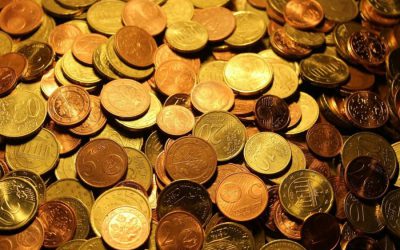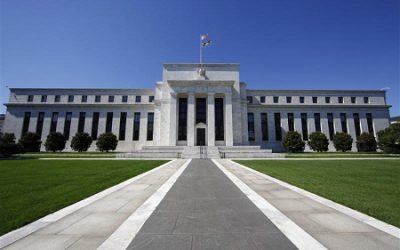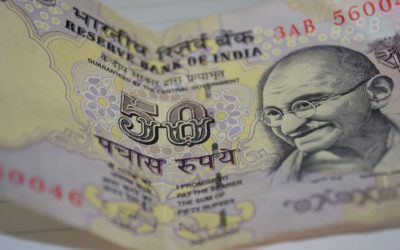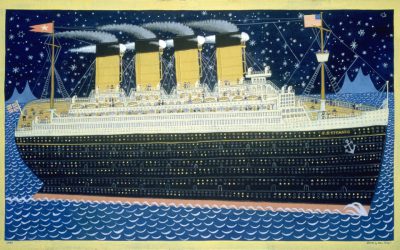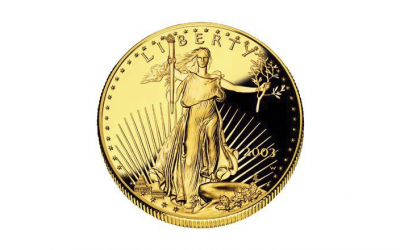The real lessons to be learned from Canada’s 19th-century currency system.
Money & Banking
Wrong Lessons from Canada’s Private Currency, Part 1
The real lessons to be learned from Canada’s 19th-century currency system.
Making a Financial Choice: More Capital or More Government Control
The Federal Reserve’s monetary and regulatory policies were major contributors to the 2007-2009 Great Recession.
Government Regulations Protect Bad Banks From Competition
The best way to spur ethical conduct by banks—trading value for value with their customers—is to deregulate banking.
How the Fed’s Monetary Policies Caused the Great Recession
John Allison's testimony before the Subcommittee on Monetary Policy and Trade, Committee on Financial Services, United States House of Representatives on March 16, 2017. Chairman Barr, ranking Member Moore, and members of the committee, thank you for inviting me to...
A Monetary Policy Primer, Part 9: Monetary Control, Today
Instead of endeavoring to influence a market-determined federal funds rate by reducing or increasing the supply of bank reserves, the Fed now adjusts a pair of rates determined solely by its own administrative decrees, while conducting open-market operations without any particular reference to these rate adjustments.
A Monetary Policy Primer, Part 8: Money in the Latest Great Muddle
A stable inflation rate is no guarantee of overall economic stability.
David Ricardo on Wealth, Inflation, and Freedom (Economic Ideas)
David Ricardo (1772-1823) was one of the most influential economic theorists of the first half of the nineteenth century.
Has the Fed been Holding Down Interest Rates?
Free banking money guru George Selgin opines.
War on Cash Spreads to India
The war on cash is a sign that central banks may see a dangerously deteriorating situation, one that has led to a feeling of desperation by governments and a wish to control the wealth of citizens.
Money and Banking Under Laissez-Faire Capitalism
This talk examines the development, operation and performance of monetary systems in the absence of government intervention.
Monopoly Money: The Destabilizing Consequences of Central Banking
How currency monopolies promote booms and busts, and having a lender of last resort leads to moral hazard and financial instability.
A Monetary Policy Primer, Part 7: Monetary Control, Then
“Monetary control” refers to the various procedures and devices the Fed and other central banks employ in their attempts to regulate the overall availability of liquid assets, and through it the general course of spending, prices, and employment, in the economies they oversee.
Reforming Last-Resort Lending: The Flexible Open Market Alternative
I regard any need for last-resort lending as reflecting, not the inherent shortcomings of private financial markets, but the debilitating effects of misguided regulatory interference with the free development of those markets.
Inflation, Price Controls and Collectivism During the French Revolution: Economic Ideas
When governments find it impossible to continue raising taxes or borrowing funds, they have invariably turned to printing paper money to finance their growing expenditures. The political economy of the French Revolution is a tragic example of this.
The Election’s Bearing on Monetary Freedom
The sad reality is that the battle for monetary freedom has for some time now taken the form of a rearguard action, aimed at resisting as much as possible ever-increasing government incursions into an ever-shrinking realm of financial choice.
The Perils of Financial Over-Regulation
Financial systems, like economies generally, are organic entities. They must be allowed to flourish in a natural way.
The Investment Bankers Contribution: Directing Capital To Productive Uses
Productive companies and investment bankers who help them obtain capital are making an important contribution to human flourishing for which they should be proud.
Free Banking and the Federal Reserve
The record of past "free banking" systems, in which paper currency consisted of competitively supplied banknotes, contradicts the widespread belief that central banks play an essential part in promoting financial stability....
A Monetary Policy Primer, Part 6: The Reserve-Deposit Multiplier
The multiplier’s significance to monetary policy is, or used to be, straightforward: it indicated the quantity of additional bank deposits that monetary authorities could expect to see banks produce in response to any increment of new bank reserves supplied them by means of either open-market operations or direct central bank loans.
The Myth of the Myth of Barter
There is, after all, at least one impulse among humans that’s more deep-seated than their “propensity to truck, barter, and exchange.” I mean, of course, their propensity to let themselves be thoroughly bamboozled.
Free Market Money: On The Separation of Banking and State
Government has been the cause of monetary disorder in our society. A free market in money and banking would be the solution to our “age of inflation.” Government central-planning of money has been tried and it has failed. It is now time for monetary freedom to be given a chance.
On Free Banking, Monetary Rules, and Crusades
Free banking and monetary rules were rival ideas for guarding against abuses of discretionary monetary policy, today they are properly seen as complementary schemes, one for improving the performance of the banking system, the other for reforming the base-money regime.
A Monetary Policy Primer, Part 5: The Supply of Money
On the Fed’s “instruments of monetary control,” which include devices for regulating the total quantity of bank reserves and circulating Federal Reserve notes, and also for regulating the quantity of bank deposits and other forms of privately-created money that will be supported by any given quantity of bank reserves.
Like this content? Subscribe to support our work — it's free.
Read by students, professors, and citizens, Capitalism Magazine provides over 9,000 free to read articles and essays from pro-reason, individual rights perspective. 100% independent.
No spam. Unsubscribe anytime.




